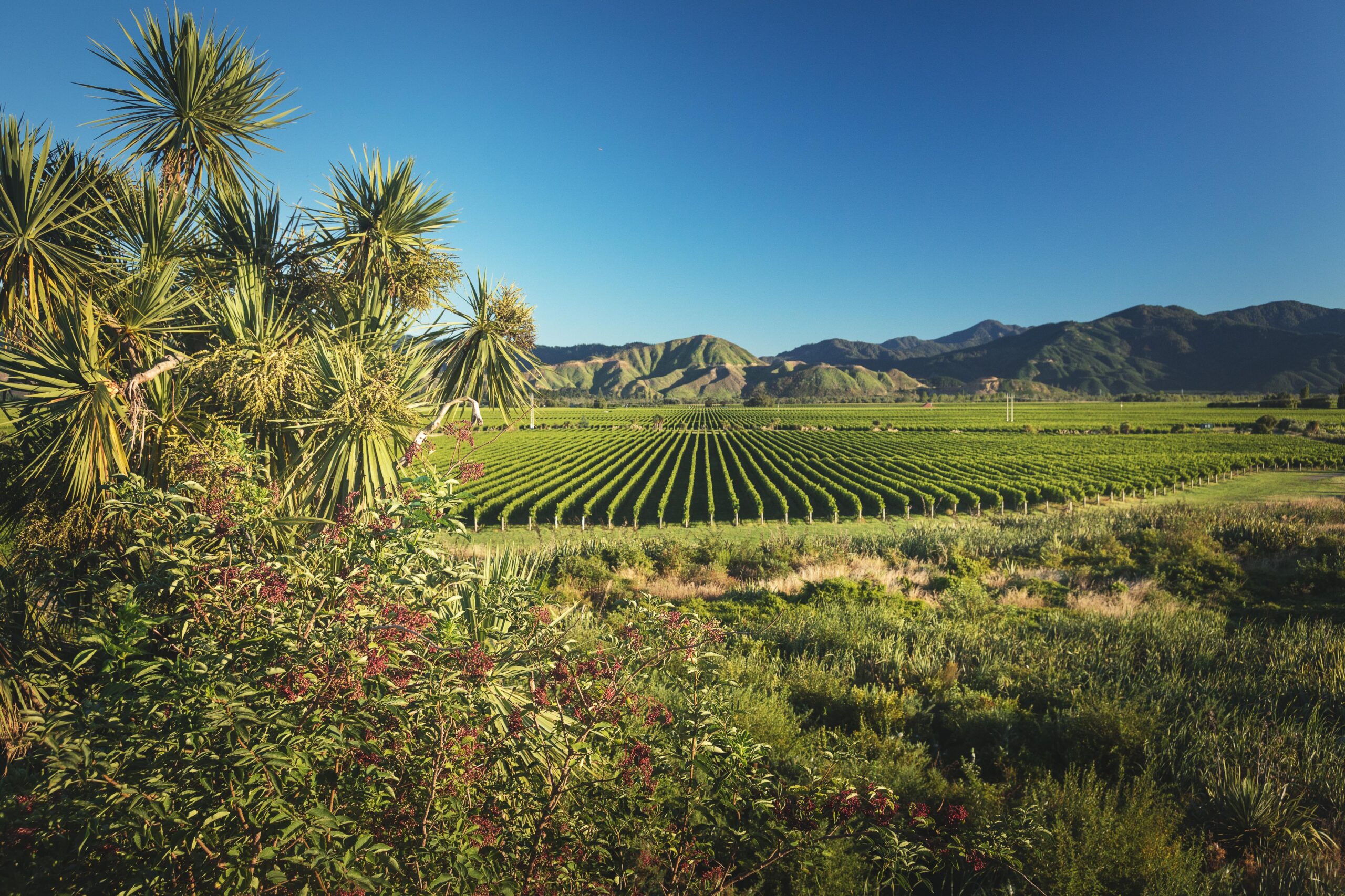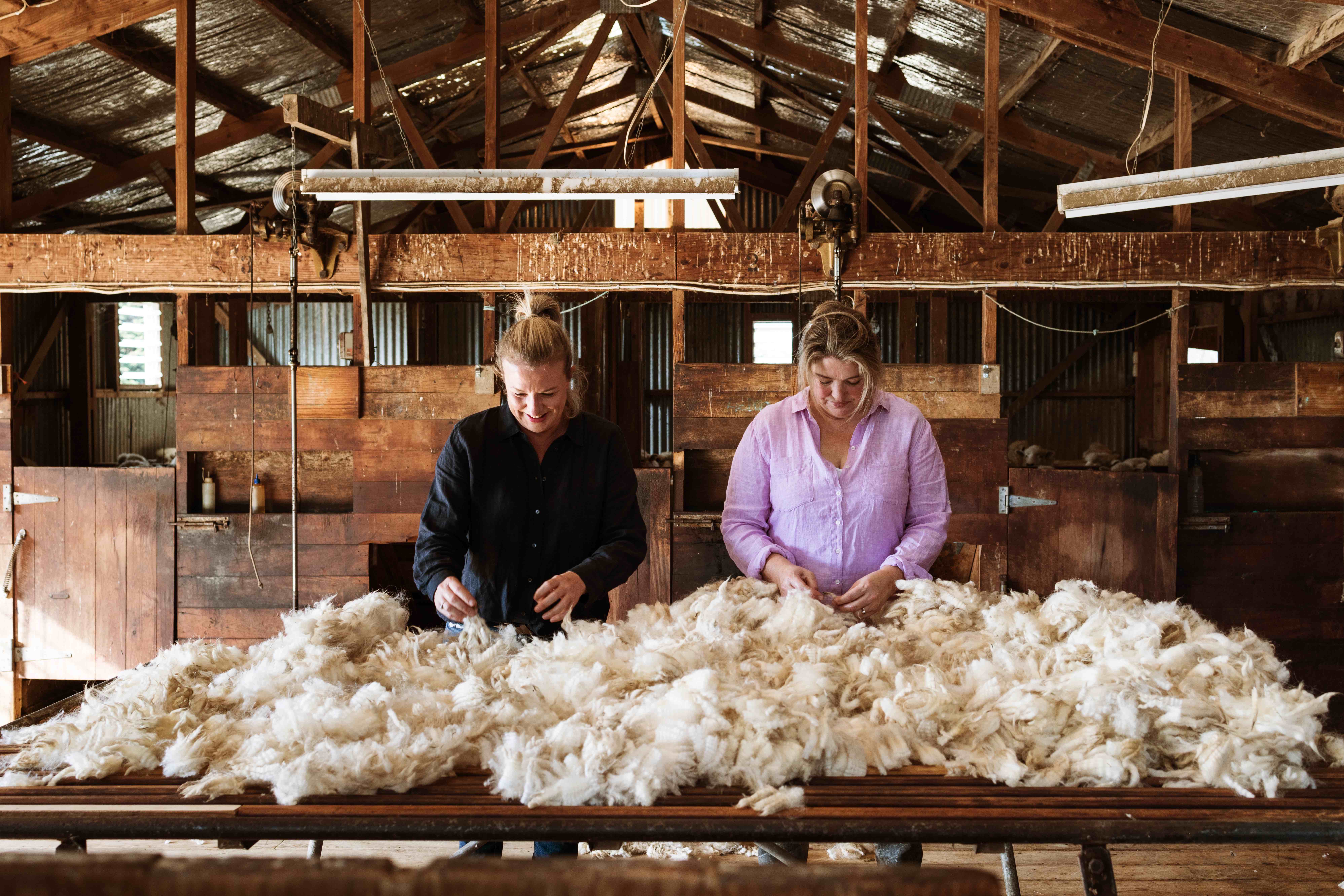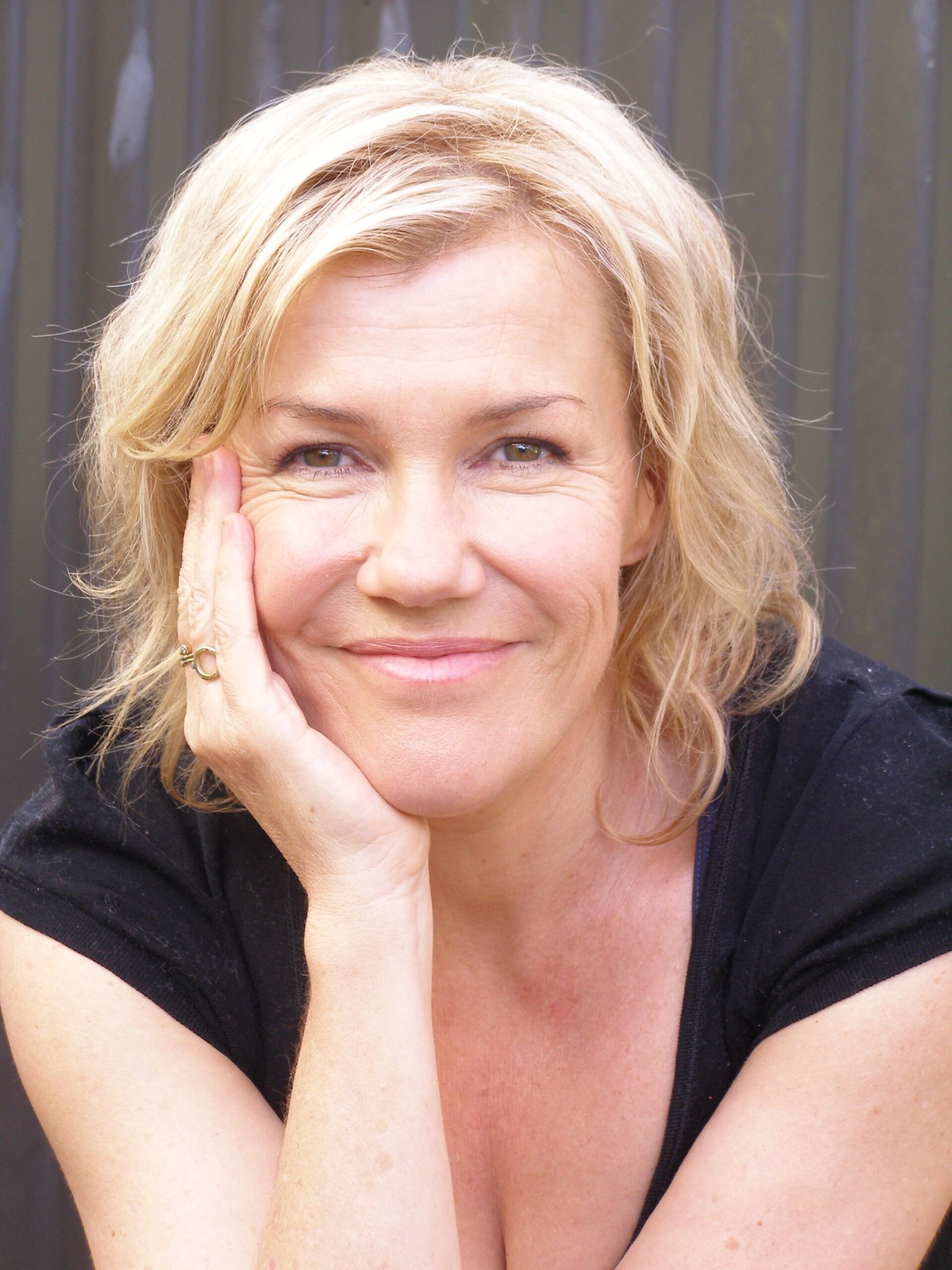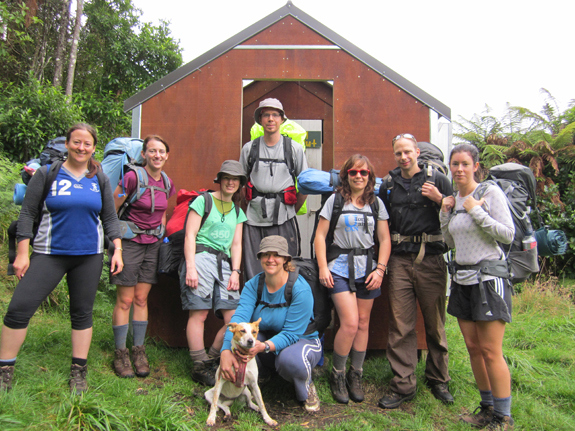Pernod Ricard Winemakers were recently named a ‘world-leader in biodiversity’ at the Drinks Business Green Awards ceremony in London because of their impressive local initiatives at their Marlborough vineyards. Good caught up with Pernod Ricard’s sustainability manager Tracey Marshall to find out more.
Interview Carolyn Enting. Hero image Jim Tannock Photography
Growing up in New Zealand on a high-country sheep station has given Tracey Marshall a real passion for protecting the environment. For the past 11 years she has worked for Pernod Ricard Winemakers New Zealand, driving their sustainability initiatives in Marlborough include restoring wetland and monitoring local ecosystems, protecting and supporting native birds including the karearea (native falcon), planting more than 8,000 native plants, and ending the use of non-biodegradable straws and stirrers in their activities.
You are the Sustainability Manager for Pernod Ricard – where does your passion for the land and environment come from?
Growing up in a remote area of the South Island, I spent a great deal of my spare time riding horses around mountainous high country and swimming in pristine rivers, and probably took for granted that our natural environment would stay that way. As I grew and saw more of the world, I could see first-hand the negative impacts of humans on our natural environment.

When did you start in this role and what does it encompass?
I started my role as sustainability manager in 2016, after 10 years in a related role as a quality, safety and environment advisor for Pernod Ricard Winemakers. The role ensures our environmental, safety and health, wellbeing and quality/food safety systems are effective and continuously improving. It’s about making sure that everything we do is world-class when it comes to minimising our impact on the environment while continuing to deliver premium quality products. I love the ability to create positive change for long term benefits to the environment, our employees and our communities. I want to be part of the solution so future generations are also able to grow nutritious food in healthy soil, swim in rivers, have plentiful clean water and live well in a biodiverse world.
Tell us more about the Green Drinks Award you won in London for biodiversity. What did the award specifically recognise and celebrate?
We won the Amorim Award for Biodiversity, recognising excellence in both protecting and enhancing biodiversity in the wine industry. Our entry highlighted biodiversity at all levels of the ecosystem, from microbial flora through to large fauna. Not only do we focus on our own vineyards and land, but contribute to enhancing the biodiversity in our community, through volunteer projects and partnerships.
Which of Pernod Ricard’s many biodiversity initiatives have been most rewarding to work on, and why?
The restoration of our Kaituna wetland is immensely rewarding, as the regeneration and native plantings have begun to mature, creating a very special and serene place to visit. The larger trees now create a microclimate and shelter the naturally regenerating seedings.

What has been the most challenging initiative to get off the ground, and why?
We have a project underway to eliminate waste to landfill, and this has been challenging as our waste audits identified many items of waste that were either non-recyclable materials (such as mixtures of paper/tin/plastic in packaging) or the non-availability of recycling services. We are working with our suppliers on solutions to eliminate, reduce or recycle each type of waste. This is something we feel is vitally important to ensuring we minimise our impact right through the supply chain.
In what way can vineyards and the wine industry contribute to sustainability?
Around 98 per cent of wine industry participants are accredited through Sustainable Winegrowing New Zealand, and there has been a long history of advocacy for sustainable practices by the wine industry. As a result, the wine industry in New Zealand has been recognised as a leading model for sustainability in primary productions and offers a good case study for other types of farming.
Our industry body, New Zealand Winegrowers has identified several pillars of sustainability that wineries and vineyards can work towards, and these include biodiversity, soil, air and water, and having these guidelines gives wineries a tangible path to improve their sustainability. Some of the initiatives are small, simple things that make a big difference. For example, planting certain flowers between the rows of vines attracts a native wasp that controls caterpillars as well as preventing weeds coming through – so that reduces the need to spray both caterpillars and weeds. Similarly, using some of the spare land around vineyards to plant native plants helps to provide shelter and food for native birds.
What are Pernod Ricard’s long-term goals surrounding biodiversity and sustainability?
Sustainability is one of the four essentials of the Pernod Ricard strategy globally, with a genuine commitment to preserving the land that is essential to protecting the future of our business. So, for us here in New Zealand, it’s fantastic to be part of an organisation that takes its responsibility seriously. Our Environmental Policy covers the entire supply chain and all business activities, focusing on reducing waste, energy consumption and carbon footprint, while protecting the land, water and biodiversity. As well, we are also looking for ways to develop more sustainable products and improve the overall effectiveness of our environmental management systems. To achieve this, we have a clear roadmap that plots out key milestones that we need to meet to achieve our goals. At the moment, one of our biggest priorities is our ‘no waste to landfill by 2020’ project.

You’ve been involved in sustainability projects for some time now – what has changed and in what areas are change and improvement still needed?
We are seeing a strong shift in the drivers for sustainability in the new generation of employees. In the past sustainability was implemented by individual staff, whereas now we see that sustainability and ethical production is embedded in people’s values and expectations. A great example of this can be seen in our Hawke’s Bay vineyard where workers noticed a pair of dabchicks near one of the vineyard dams. They knew these birds like to nest on a floating raft, so the team built them one from empty milk bottles and pallets from the winery along with some vegetation to create an artificial island. These sort of employee-led initiatives are becoming more and more common and now the role of management is to create a culture where these ideas are encouraged and supported.
Restoring wetland and monitoring local ecosystems; Protecting and supporting native birds including the karearea (native falcon); Planting 8,000+ native trees; and ending the use of non-biodegradable straws and stirrers. What’s next on the list to tackle?
With continuous improvement as a key focus, continuing to protect resources and improve our practices will stay foremost in our planning. There are currently projects underway to improve the eco-design of our packaging, more riparian and native plantings, precision irrigation, conservation volunteering in our community, to mention a few. New initiatives from our staff are encouraged and are often the source of new projects. One area I would like to focus on is improving our contribution to a circular economy.
As the sustainability manager of Pernod Ricard, and 11 years in the industry, you must come across many different wines. What is your chosen tipple?
It depends on the occasion and mood for me. On these cold winter nights my favourite wine to share by the cosy fire would be a Church Road Grand Reserve Syrah. In warmer weather, I enjoy Stoneleigh Wild Valley Sauvignon Blanc, which intrigues me with its unique wild fermented characteristics each vintage. And if it was dinner with friends or family, I love a Marlborough Pinot Noir, particularly Brancott Estate Letter Series ‘T’ Pinot Noir, with its delicious red fruit flavours.





